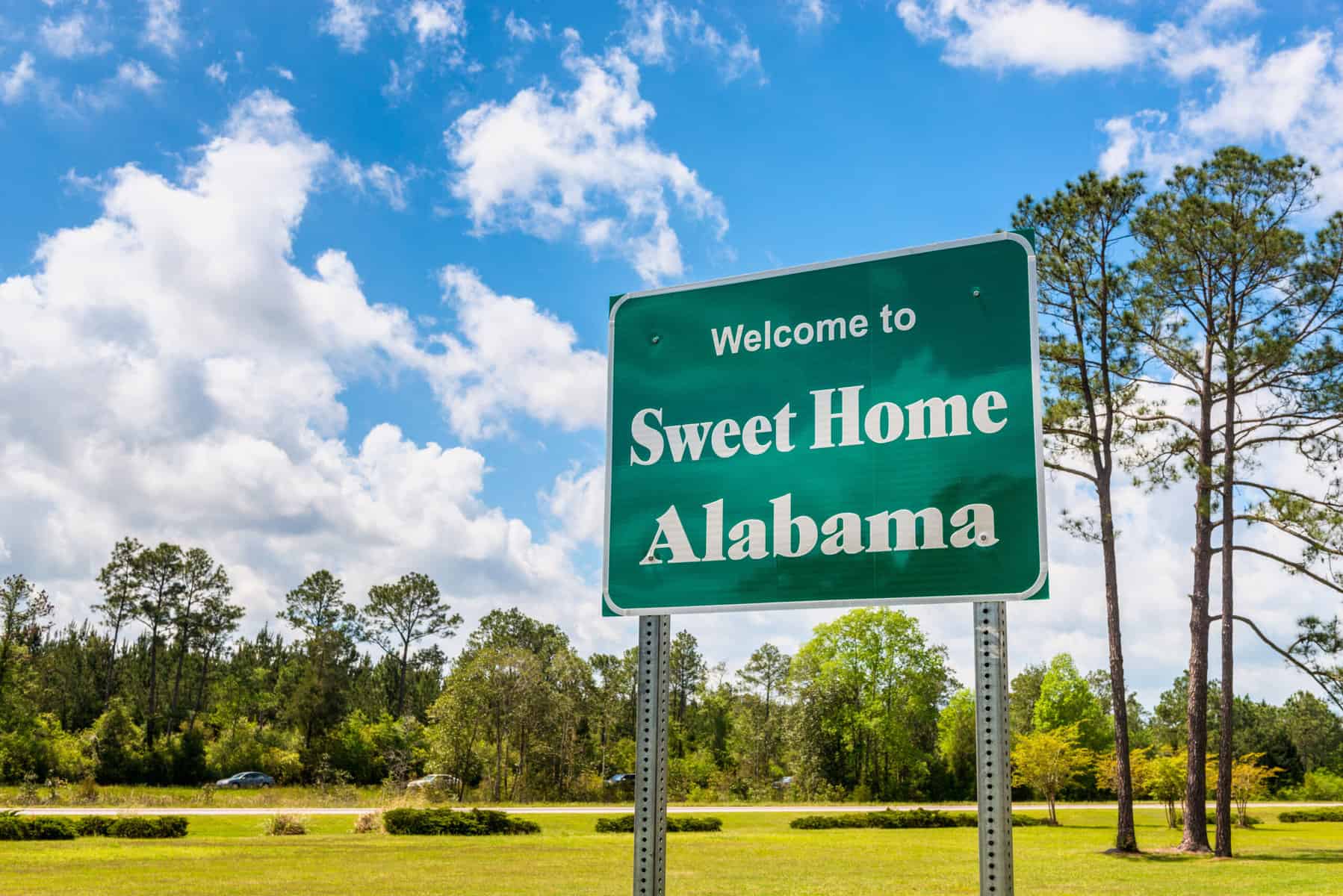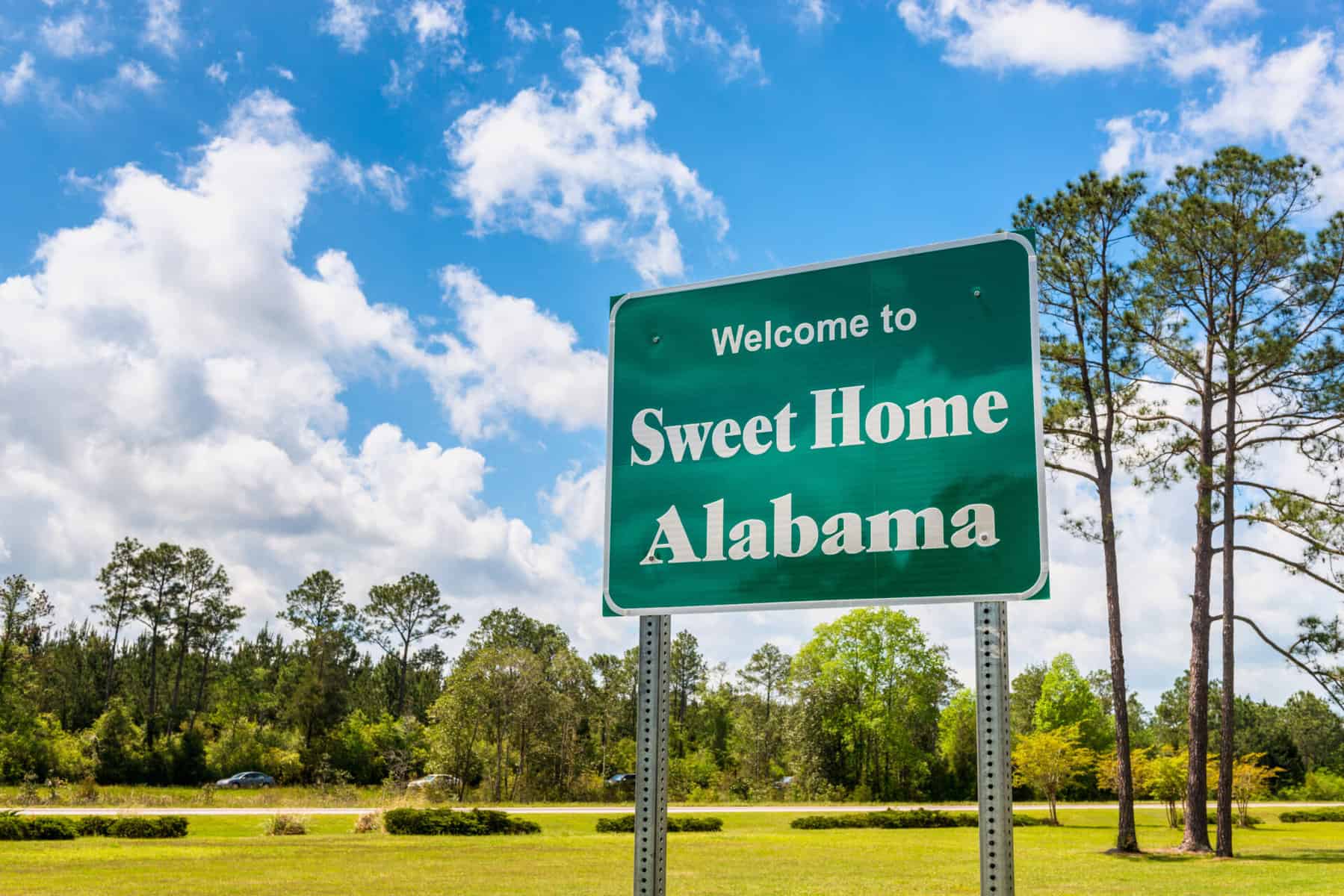How to Homeschool Legally in Alabama (2025 Update)
If you’re wondering how to homeschool in Alabama, it’s a good idea to do your research first, as homeschool laws vary by state. Whether you’ve homeschooled before in another state, or you just decided to make the switch to homeschooling, you’re in luck!
Alabama’s homeschool laws allow for a lot of freedom, so parents can take advantage of the flexibility that home education has to offer.
In this article, we’ll go over everything you need to know to start homeschooling in Alabama with confidence!
Homeschooling in Alabama at a Glance
Alabama – The Yellowhammer State
| Homeschool Type | Church School | Private School | Private Tutor |
| Required Age | 6-16 | 6-17 | 6-17 |
| Standardized Testing* | No | No | No |
| Subjects* | No | No | No |
| Time Requirements* | No | No | Yes |
| Graduation Requirements* | No | No | No |
| Special Requirements | No | Must be immunized | Must be certified |
| Financial Resources Available | No | No | No |

First, it’s important to note that Alabama has three different options for homeschooling. This article will cover all three, so you can decide which option is best for your family.
Church School
Church schools are non-public schools that do not receive tax funding. They offer a K-12 education and can consist of one church or a group of churches.
Classes may happen on-site, online, or at home. Parents can establish their own church school at home, or their home can be an extension of an existing church school.
Private School
Private schools are defined as schools operated by a nongovernmental agency or entity. Private schools do not receive tax funding and should offer education opportunities for students in grades K-12. Parents may enroll their children in an existing private school and deliver the course content at home or create a private school themselves. Private schools tend to have more restrictions than church schools.
**Note: If you enroll your child in an external church or private school instead of establishing your own, your child will need to follow the rules and regulations of that school as long as they are enrolled. This may apply to subjects, testing, attendance, graduation, or other requirements.
Private Tutor
Private tutors are certified with the State of Alabama and are required to teach on a schedule, as well as submit additional course information to the superintendent. You can become a private tutor yourself or hire one instead.
All non-public schools are not subject to state licensing or regulation. However, you may still be required to submit some reports to the state.
Parent Qualifications
There are no parental requirements for teaching your child with a church school or private school. However, if you prefer to go the private tutor route, all private tutors must be registered and certified by the State of Alabama. You can get certified yourself or find a registered tutor online.
Notice of Intent
Whatever you decide to do, your local superintendent must be informed that your child is attending school outside of the public school system.
For church schools, the superintendent of your district will have you fill and sign a form stating that your child is enrolled in a church school. The administrator of your church school may be able to provide this for you. This only needs to be filed once, typically upon enrollment.
Private schools must send notification to the superintendent by the end of the first week of the public school year. This is done through a form provided by the Alabama Department of Education. The form should include the names, birthdates, and addresses of the children enrolled in the private school.
Private tutors will have to file a notice with the superintendent. The notice should include which children are to be taught, the subjects they will learn, and an instruction schedule.
Attendance
The church school teacher is responsible for taking daily attendance. While public schools are required to hold classes for 180 days, church schools do not have that requirement. They can teach on a schedule of their choosing.
Private school teachers are responsible for daily attendance. Private school teachers must also send a weekly attendance report to the superintendent. Similar to church schools, private schools do not have a requirement for days of instruction.
Private tutors are required to keep a schedule. Private school tutors must teach for 140 days, at least 3 hours per day, between the hours of 8 a.m. and 4 p.m.
Homeschool Curriculum
Church schools are not required to follow the subjects listed for private schools and private tutors. They often make their own required courses list, so be sure to check with your church school for more information.
Private schools are required to teach in English, unlike church schools. They are also required to teach the several branches of study required to be taught in the public schools. For grades 1st-8th, this includes:
- English
- Social studies
- Math
- Science
For high school students, additional subjects required typically include:
- English
- Social Studies
- Math
- Science
- Career Preparedness
- Physical Education
- Three elective credits of your choice
- One of the following: career/technical education, arts, or foreign language
- Health
Private schools are also required to teach physical education to students of all ages.
Private tutors must also teach the same subjects required to be taught in public schools, but they are not required to teach in English.
If you choose to establish your own private school, you’ll need to provide your own curriculum.

Testing
There are currently no standardized testing requirements for homeschooled students in Alabama. However, external church schools or private schools may choose to require standardized testing. Students being homeschooled under those options will need to complete any standardized testing that is required by their administration.
Record Keeping
Church school teachers will need to keep attendance records, as well as any other records that may be required by the church school.
Parents who choose to private school at home need to keep attendance and absence records, immunization records, and copies of any paperwork filed with the local superintendent.
Private tutors need to keep a record of work completed and attendance, and they will need to send these records to the Board of Education if requested.
Graduation Requirements
For parents who choose to educate through an external church or private school, their student will have to meet their school’s requirements to graduate.
If the church or private school they attend is established by you, and they are not enrolled at an external institution, you can decide when your child is ready to graduate, and provide your child with a high school diploma.
Private tutors can also decide when their students are ready to graduate.
Financial Resources
The Alabama Choose program provides education savings accounts (ESAs) for homeschooled students, to cover the cost of education. Currently, homeschool families can receive a maximum of $2,000 per child (up to $4,000 per family).
To qualify, you must be a resident of Alabama and meet the income requirements. ESAs can be used to cover tuition, fees, and other qualified education expenses.
Finally, you may be able to claim a tax credit if you donate to Alabama’s Education Scholarship Program.
Other Tips & Resources
For more information about homeschooling in Alabama, check out:
If you’re wondering whether Miacademy or MiaPrep would be the best homeschool curriculum for your family, feel free to reach out to our friendly customer service team!
The information provided is intended for research purposes only and should not be considered legal advice. To obtain accurate and comprehensive details on Alabama homeschool laws, we recommend consulting the official resources and guidelines provided by your state. Additionally, staying informed about any changes to these laws is important, so be sure to look out for any updates.
Frequently Asked Questions
Read More
Please note: the information provided is intended for research purposes only, and is not legal advice.
Miaplaza is not responsible for any errors, omissions, or outdated information, or for the results yielded through use of this information.



